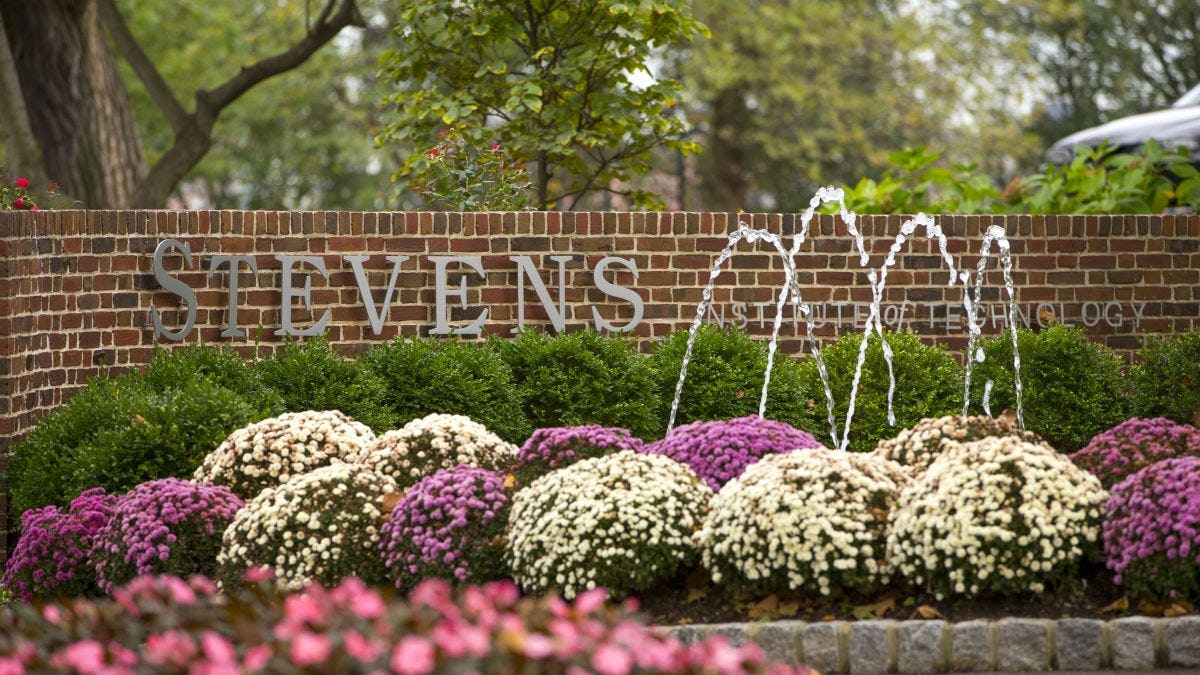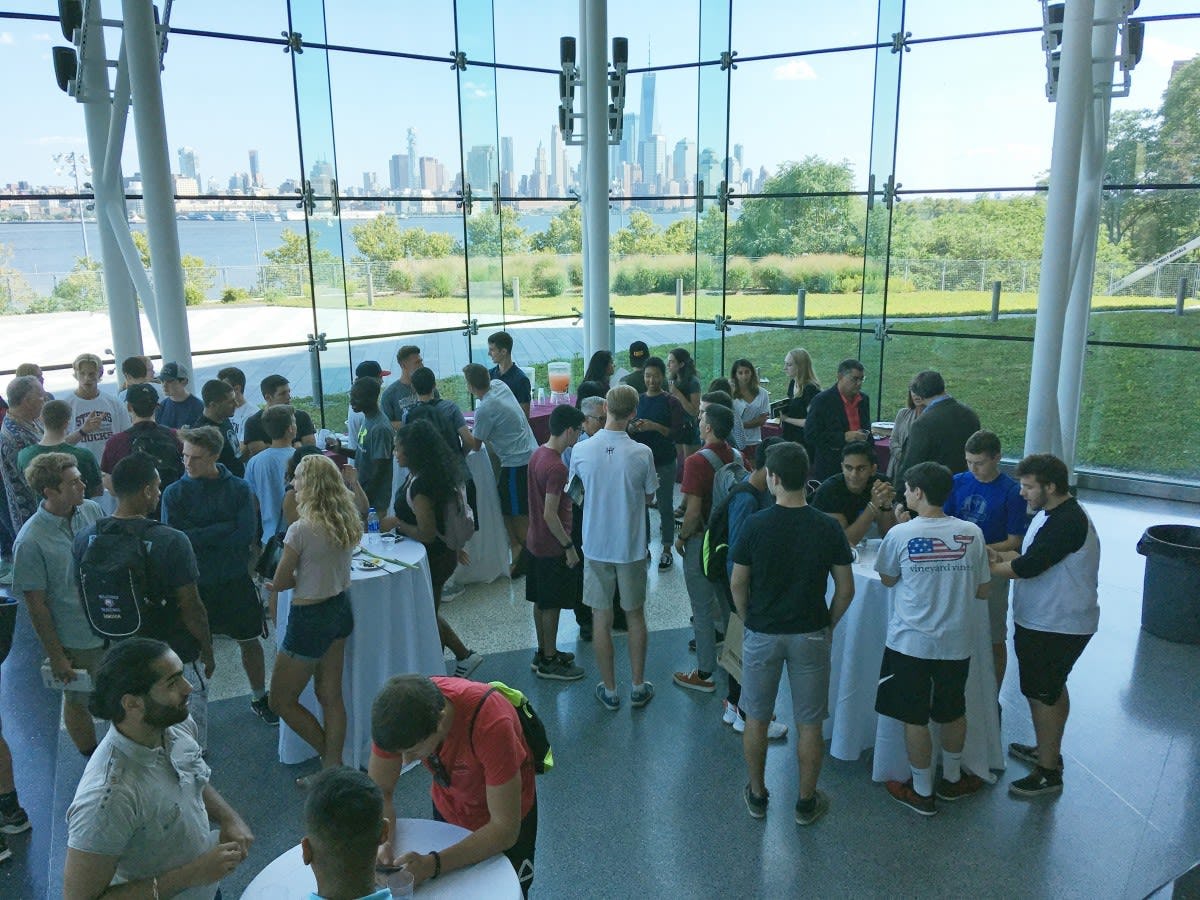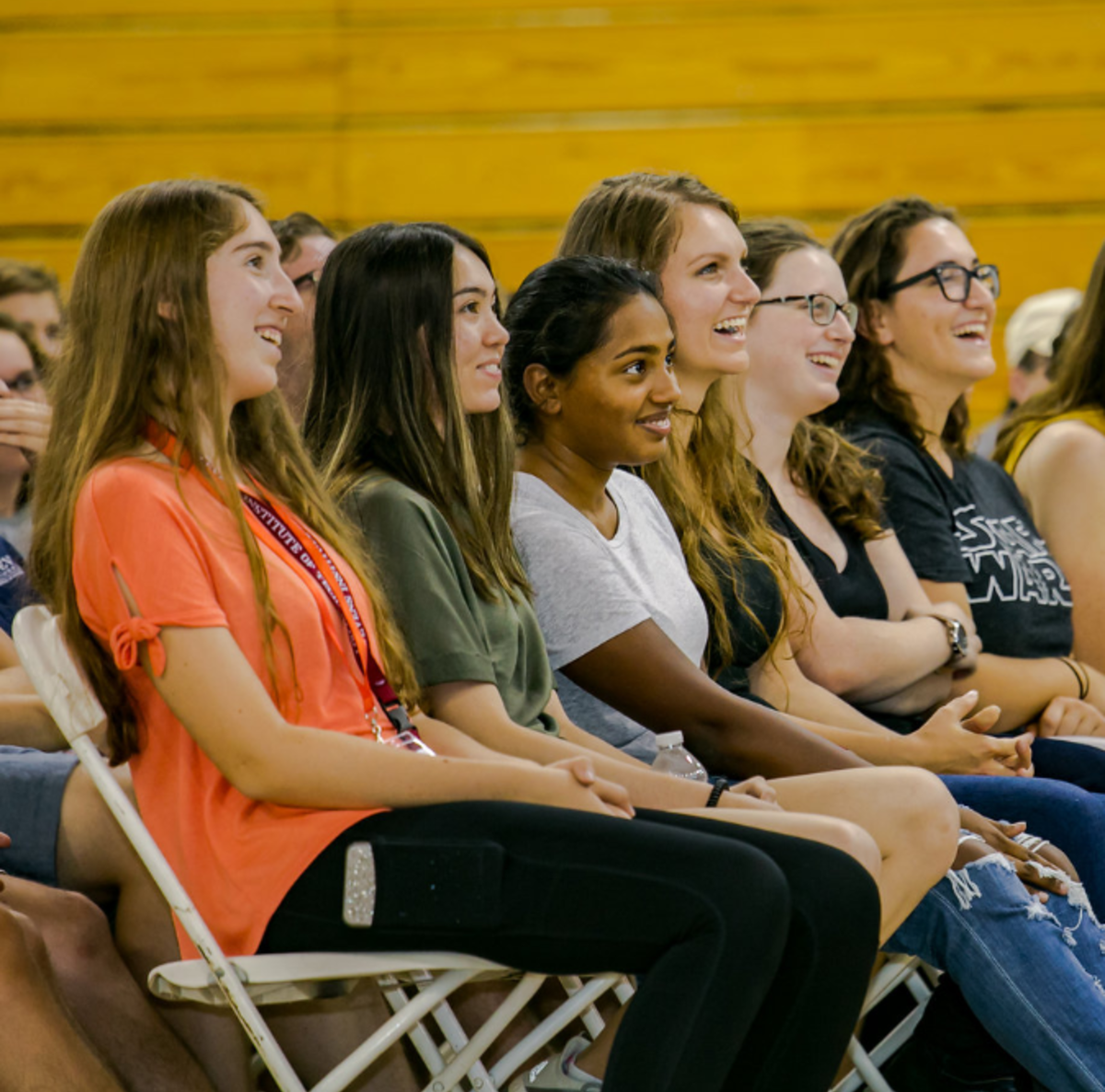Incoming Class of 2022 Arrives at Castle Point with Diverse Backgrounds, Accomplishments and Interests
What do a junior Olympics fencer, a competitive yodeler, a Broadway performer and a three-time national taekwondo champion have in common? Well, they are members of the Stevens Institute of Technology Class of 2022.
They arrive at Castle Point armed with an impressive array of accomplishments. They have founded businesses and charities, raised $40,000 for the Make a Wish Foundation, developed and launched apps on the App store, performed in Billy Elliot the Musical; and may even compete in the 2020 Summer Olympics in Tokyo.
“That’s just a sampling of the richly diverse talents and interests that characterize the Class of 2022. They are an exciting addition to our student body and the Stevens community is excited to help nurture their talents so they can realize their full potential and add to their already impressive resumes,” said Jacqueline Williams, dean of undergraduate admissions.
The new class will be 33 percent larger than last year and will contribute significantly to the increased diversity of the student body. The number of underrepresented students enrolled in the freshman class increased by 43 percent, making the Stevens Class of 2022 the most diverse in the university’s history.
Part of that impressive increase was helped, in part, by the inaugural cohort of 23 Clark Scholars, recipients of the largest endowed scholarship gift in Stevens’ history. The $15 million endowment from the A. James and Alice B. Clark Foundation, announced last fall, provides significant financial support and enhanced learning opportunities in the engineering, computer science and cybersecurity fields for exceptional students from traditionally underserved communities.
According to Marybeth Murphy, vice president for enrollment management and student affairs at Stevens, programs like the Clark Scholars Program and the Accessing Careers in Engineering and Science (ACES) initiative advance the university’s strategic priority by making Stevens the destination for talented students from underserved communities. The Stevens incoming class includes 56 students with scholarships from donors to the ACES initiative.
“Having a diverse student body enriches the educational experience of the entire student community. The more students learn about and interact with students from different backgrounds they become better global citizens,” said Murphy.
Members of the incoming class were selected from the largest and most competitive application pool. Undergraduate applications increased 11 percent from 2017, with increases across the board: more women, more African-American and Latino applicants and more students applying to each of the four Stevens schools.
The overall acceptance rate for the freshman class is 41 percent, down from 43.9 percent in fall 2017. Additionally, the average SAT score is up 16 points from last year’s freshman class, with an average score of 1399, among statistics available in mid-August.
The growing national and international prominence of a Stevens education is evident in the regional diversity represented by the incoming class, as more students from outside of the New York metropolitan area make Castle Point their home. As of mid-August, Stevens saw a 28 percent increase in out-of-state enrollment among the freshman class. Freshmen from 27 states and 10 countries have enrolled, including China, India and Turkey.
While demand for all four of Stevens’ schools has increased, the School of Business saw some particularly pronounced growth, with applications up 27 percent and freshman enrollment jumping almost 21 percent.
Within the Schaefer School of Engineering and Science, computer science was among the most popular major for freshmen applicants, with mechanical engineering the most popular engineering major. Business and technology and quantitative finance majors continue to draw students in the School of Business, while most students applying to the College of Arts and Letters were attracted to its music and technology program. The most popular programs that students applied to within the School of Systems and Enterprises were software engineering and industrial and systems engineering.


